‘Slut-Shaming’ in Music: Female Artists Criticized for Their Sexual Expression
We review the divas who survived public opinion

Karol G at the 2023 Billboard Music Awards at Line 204 in Los Angeles, California. The show airs on November 19, 2023 on BBMAs.watch. (Photo by Christopher Polk/Penske Media via Getty Images)
Based on the course of history, the so-called «slut-shaming» is an inherent element in the success of women, including our iconic divas. This term is used to describe the stigmatization of a person based on their appearance and the perception of their sexual behavior, especially targeted at women.
In this article, we go through the cases of some female artists who have had to face this discrimination in their lives and careers. We also emphasize the role of our Latina artists in changing the game and openly addressing female desire in their songs.

Anitta performs on stage during 'Ensaios de Carnaval da Anitta' show at Memorial da America Latina on February 4, 2024 in Sao Paulo, Brazil. Mauricio Santana/Getty Images / Mauricio Santana

Anitta performs on stage during 'Ensaios de Carnaval da Anitta' show at Memorial da America Latina on February 4, 2024 in Sao Paulo, Brazil. Mauricio Santana/Getty Images / Mauricio Santana
‘Slut-Shaming’ & Women-Blaming in the Music Industry
Of course, this includes Madonna, one of the most groundbreaking icons who challenged sexual exposure limits since the 80s. In the 90s, she even released a book called «SEX,» a catalog of unprecedented erotic images. Hits like «Like a Virgin,» «La Isla Bonita,» or «Erotica» have contributed to breaking cultural barriers globally, despite social backlash. Madonna herself has recounted instances of police attempts to arrest her for the content of her performances.
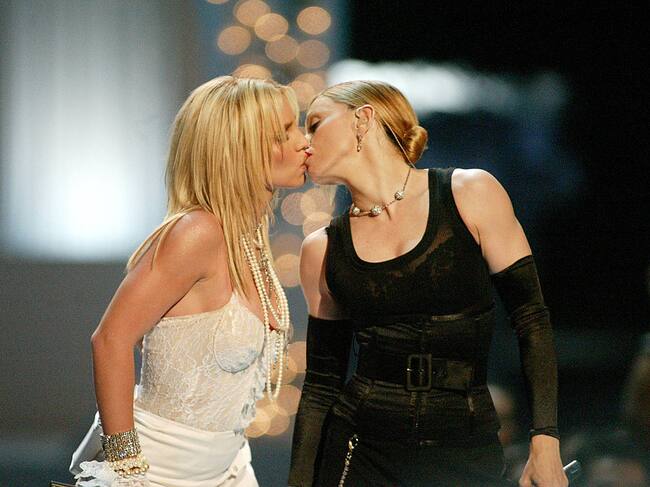
Britney Spears and Madonna. Chris Polk / FilmMagic / Christopher Polk
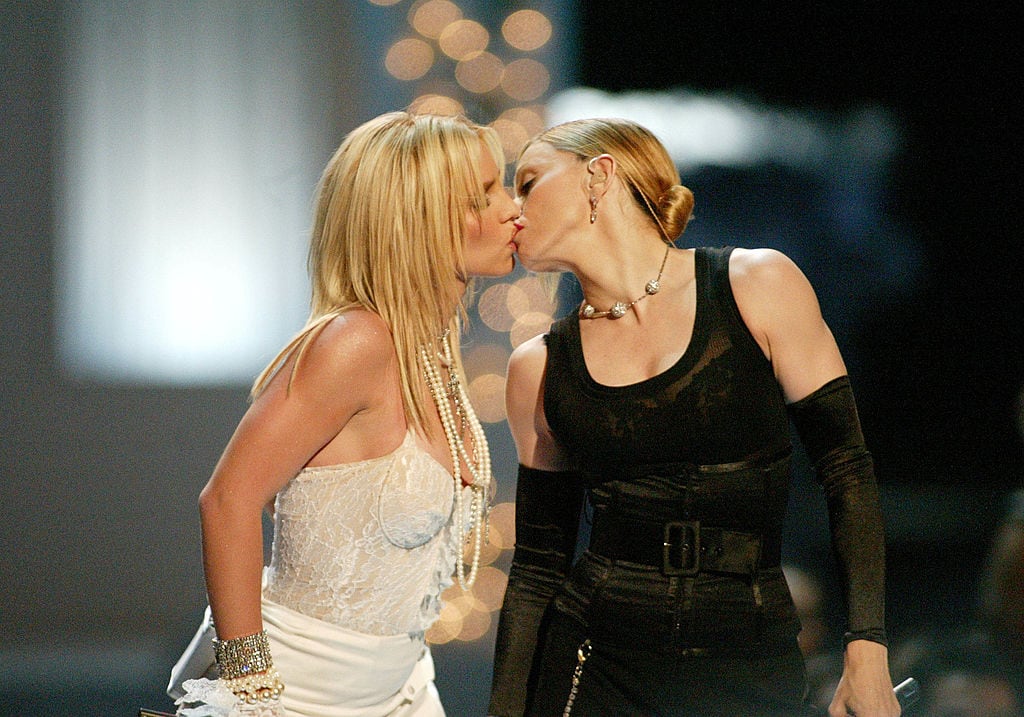
Britney Spears and Madonna. Chris Polk / FilmMagic / Christopher Polk
Britney Spears took up this legacy, her evolution from a girl to an explosive woman leaving an indelible mark on collective memory. It speaks volumes about the sexual maturity experienced by all women. «Oops!.. I Did It Again» and «Hit Me Baby One More Time» are anthems that disrupted industry norms, paving the way for more generations of female artists to speak more openly about sex and female desire. This movement includes other divas like Beyoncé, Christina Aguilera, Rihanna, or Katy Perry, among others.
Speaking of disruptions: 20 years later, we can’t forget the scandal caused by Janet Jackson and Justin Timberlake at the 2001 Super Bowl, where Timberlake exposed Jackson’s bare chest. Timberlake later claimed it was a «wardrobe malfunction,» while Jackson apologized, stating it was a last-minute decision unrelated to the event’s organization. The incident led to fines for CBS and restrictions on Janet’s music.
For Generation Z, Miley Cyrus has been our Britney Spears. We had never seen a child star – or anyone else, really – almost naked on stage while performing repetitive moves we had never witnessed before. That was the first time we saw the «twerking» live, now firmly ingrained in our imaginations alongside «perreo.» However, in that controversial 2013 performance with Robin Thicke, we didn’t understand the concept. Miley faced harsh criticism, but in hindsight, she was ahead of her time.
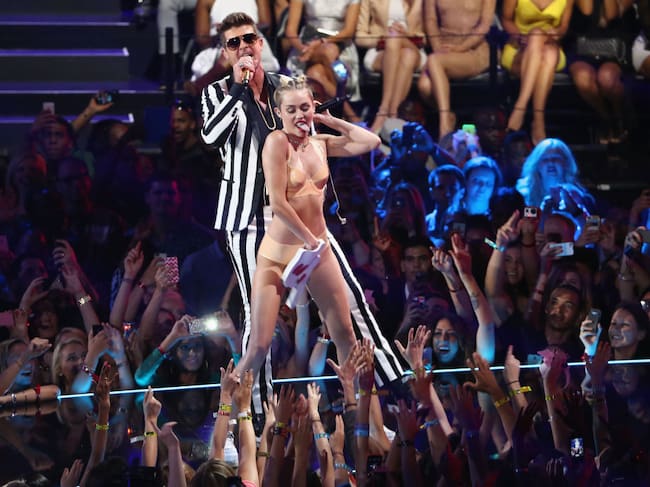
Miley Cyrus and Robin Thicke perform onstage during the 2013 MTV Video Music Awards at the Barclays Center on August 25, 2013 in the Brooklyn borough of New York City. Neilson Barnard/Getty Images for MTV / Neilson Barnard
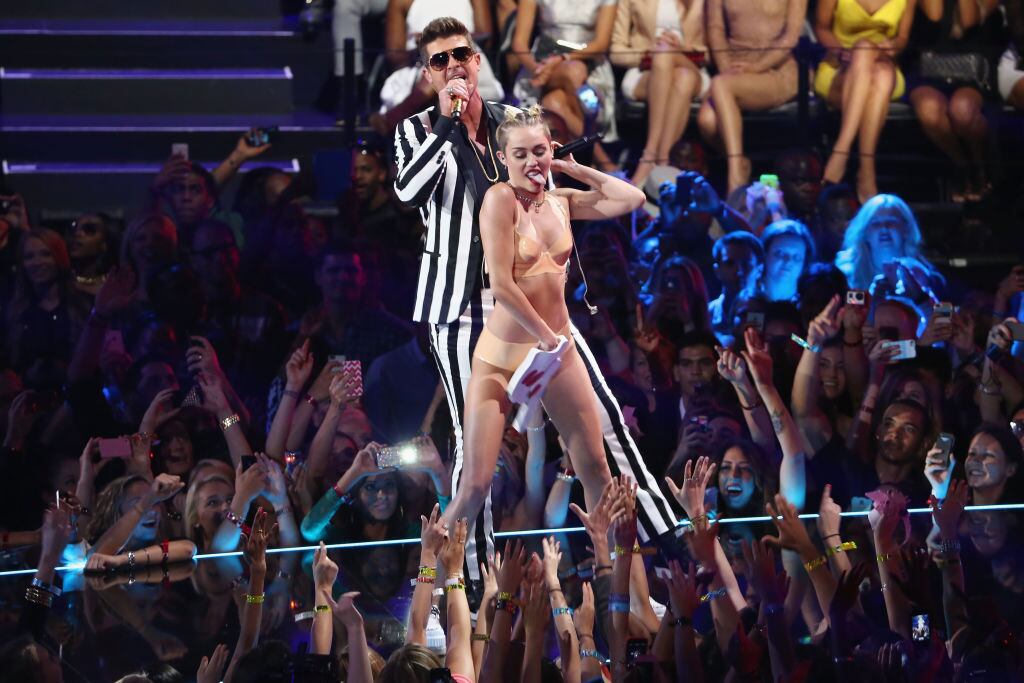
Miley Cyrus and Robin Thicke perform onstage during the 2013 MTV Video Music Awards at the Barclays Center on August 25, 2013 in the Brooklyn borough of New York City. Neilson Barnard/Getty Images for MTV / Neilson Barnard
While other artists like Selena Gomez and Taylor Swift were a bit shocked at the time – I still remember reading comments on X (before Twitter) that would seem unthinkable today – they applauded the performance. Years later, they too would join celebrities criticizing slut-shaming and the industry’s pressure on women’s aesthetics.
Latina Artists Breaking Barriers
Our Latina divas have also contributed to changing industry standards regarding women’s representation. In the last decade, gender criticism and inclusion initiatives have borne fruit both corporately and socially, as reflected in the industry.
The data supports this: women’s representation in the iconic Billboard Hot 100 Year-End Chart increased by 23.3% in the last decade. However, it still means that in the last 11 years, the gender ratio of artists is one female artist for every 3.5 male artists. The dominance of female artists in urban music charts is great news, considering the gender asymmetry present in the sector. In old-school reggaeton, except for significant exceptions (Lorna or Yvy Queen), all artists were male.
Figures like Karol G, Anitta, María Becerra, Nicki Nicole, TINI, or Emilia are contributing to change things, providing a different and more accurate representation of women, female desire, and a less sexualized and more empowered sexual expression.
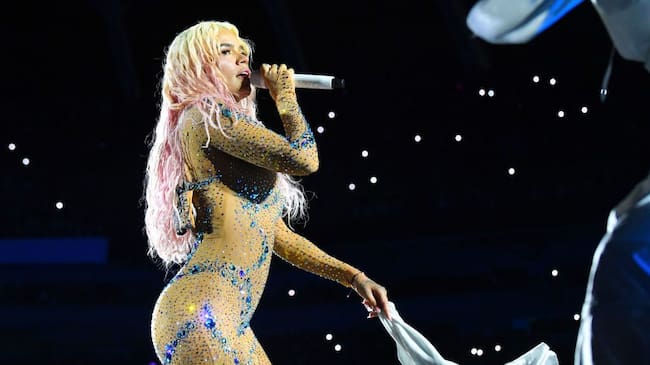
Karol G performs during her «Mañana Será Bonito» Tour at Camping World Stadium on September 24, 2023 in Orlando, Florida. Gerardo Mora/Getty Images
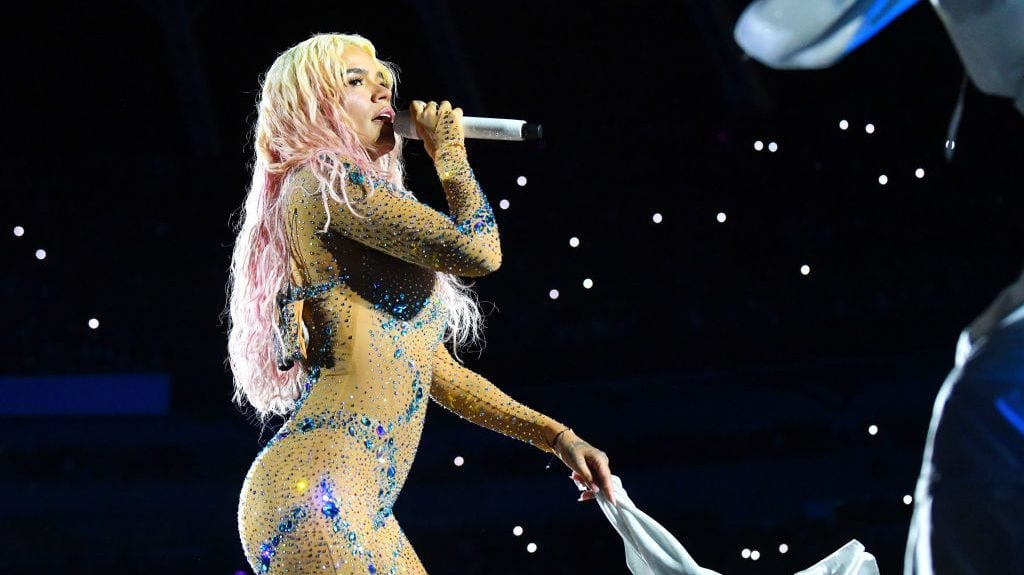
Karol G performs during her «Mañana Será Bonito» Tour at Camping World Stadium on September 24, 2023 in Orlando, Florida. Gerardo Mora/Getty Images
Ana Rojas
Periodista en LOS40, coordinando LOS40 USA y colaborando también en El País. Cubro temas de música,...
